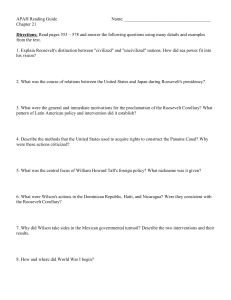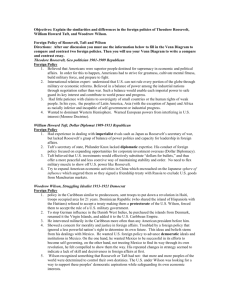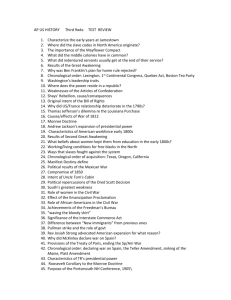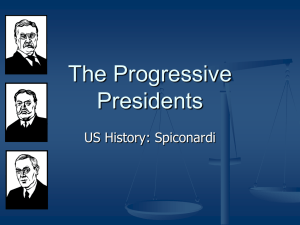Woodrow Wilson's New Freedom
advertisement
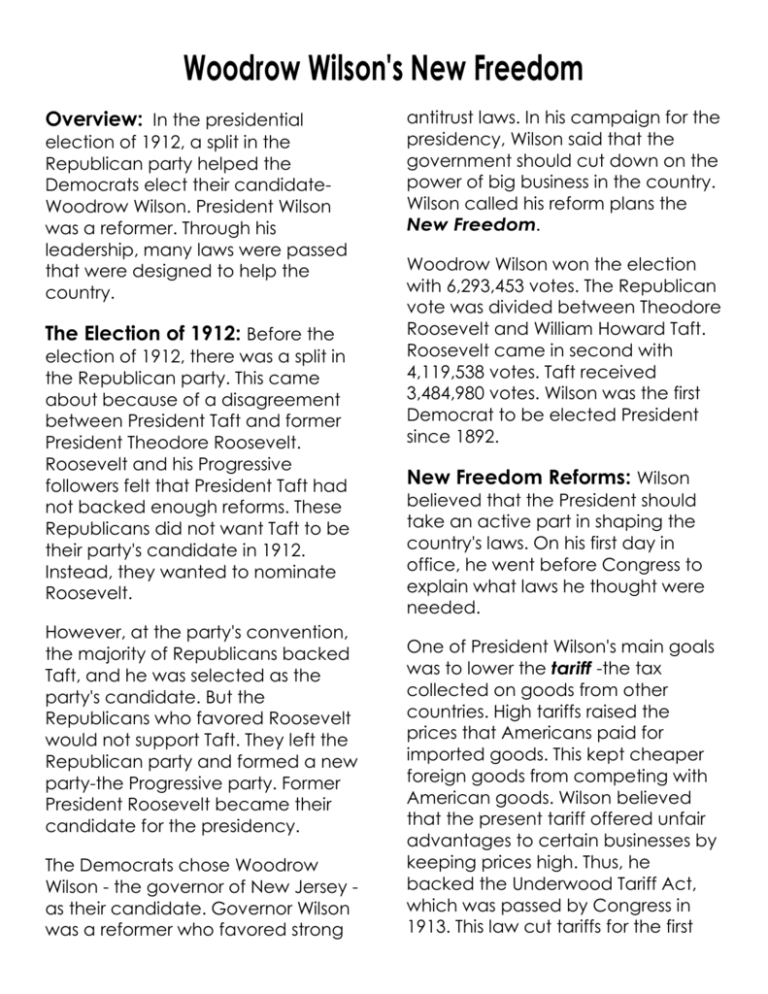
Woodrow Wilson's New Freedom Overview: In the presidential election of 1912, a split in the Republican party helped the Democrats elect their candidateWoodrow Wilson. President Wilson was a reformer. Through his leadership, many laws were passed that were designed to help the country. The Election of 1912: Before the election of 1912, there was a split in the Republican party. This came about because of a disagreement between President Taft and former President Theodore Roosevelt. Roosevelt and his Progressive followers felt that President Taft had not backed enough reforms. These Republicans did not want Taft to be their party's candidate in 1912. Instead, they wanted to nominate Roosevelt. However, at the party's convention, the majority of Republicans backed Taft, and he was selected as the party's candidate. But the Republicans who favored Roosevelt would not support Taft. They left the Republican party and formed a new party-the Progressive party. Former President Roosevelt became their candidate for the presidency. The Democrats chose Woodrow Wilson - the governor of New Jersey as their candidate. Governor Wilson was a reformer who favored strong antitrust laws. In his campaign for the presidency, Wilson said that the government should cut down on the power of big business in the country. Wilson called his reform plans the New Freedom. Woodrow Wilson won the election with 6,293,453 votes. The Republican vote was divided between Theodore Roosevelt and William Howard Taft. Roosevelt came in second with 4,119,538 votes. Taft received 3,484,980 votes. Wilson was the first Democrat to be elected President since 1892. New Freedom Reforms: Wilson believed that the President should take an active part in shaping the country's laws. On his first day in office, he went before Congress to explain what laws he thought were needed. One of President Wilson's main goals was to lower the tariff -the tax collected on goods from other countries. High tariffs raised the prices that Americans paid for imported goods. This kept cheaper foreign goods from competing with American goods. Wilson believed that the present tariff offered unfair advantages to certain businesses by keeping prices high. Thus, he backed the Underwood Tariff Act, which was passed by Congress in 1913. This law cut tariffs for the first time since the Civil War. It lowered the cost of many goods in America. President Wilson also worked with Congress to reform the country's banking system. Some Americans felt the New York bankers had too much power over the country's money supply. Business owners in the West and in the South often found it hard to borrow money. Also, some banks were not sound. People often lost money when these banks failed. Therefore, public opinion tended to back President Wilson's plans to correct the weaknesses in our country's banking and money systems. Following President Wilson's leadership, Congress passed the Federal Reserve Act in 1913. This law set up a new banking system. All national banks were required to join the system. State banks and trust companies could also become members. The country was divided into 12 banking districts. A Federal Reserve Bank was opened in each district. These banks supervised the activities of member banks. They also controlled credit by raising and lowering interest rates. This system helped to make our currency more sound. It also was designed to make it easier for Americans in all parts of the country to borrow money. Under President Wilson, the federal government took steps to end some unfair business practices. An important step was made when the Clayton Antitrust Act was passed in 1914. This law clearly listed the things' that businesses were not allowed to do, such as fix prices. To enforce this law, Congress set up the Federal Trade Commission. This commission investigated business activities to end unfair methods of competition. The Federal Reserve System and the Federal Trade Commission still serve our country today. President Wilson also backed new laws to meet the special needs of certain Americans. Farmers were helped by the Federal Farm Loan Act. President Wilson also supported a law that set the workday of railroad workers at 8 hours. In the past, some railroad workers had to work 12 hours or more in one day. The New Freedom also included reforms for America's overseas lands. In 1916, Congress passed a law that gave the Philippine Islands more selfgovernment. And in 1917, the people of Puerto Rico became American citizens.





